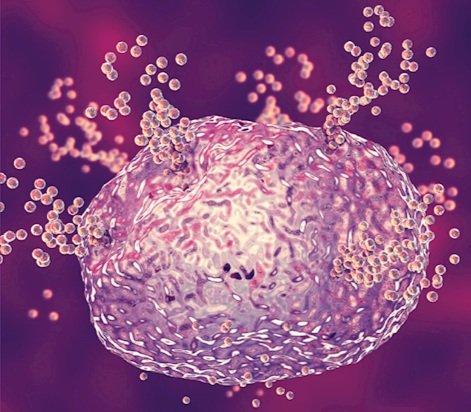Understanding Mast Cell Activation Syndrome (MCAS): A Functional Medicine Approach
Do you struggle with mysterious symptoms—rashes, brain fog, fatigue, digestive issues, or allergic-type reactions—yet all your labs come back "normal"? You might be dealing with Mast Cell Activation Syndrome (MCAS), an often-overlooked condition where the immune system overreacts in ways that can affect nearly every system in the body.
What is Mast Cell Activation Syndrome?
Mast cells are a type of white blood cell found in connective tissues throughout the body—especially the skin, gut, lungs, and brain. They play a vital role in the immune response by releasing chemicals like histamine, prostaglandins, and cytokines when they detect a threat.
In MCAS, these mast cells become overactive or hypersensitive, releasing inflammatory chemicals in response to triggers that wouldn’t bother most people—like foods, smells, stress, or even temperature changes. Root causes such as mold illness, lyme disease, viruses and gut microbial imbalances can over stimulate the immune system leading to dysregulation of the immune cells over time, driving this mast cell hypersensitivity.
MCAS can mimic other conditions like allergies, autoimmune disorders, or anxiety. Symptoms often come in flares and may affect multiple systems causing skin and allergy symptoms, gastrointestinal, neurological, cardiovascular and respiratory symptoms
Common symptoms can include:
Hives, flushing, itching, rashes or eczema
Swelling (angioedema)
Sensitivity to fragrances or chemicals
Bloating, cramping, diarrhea, constipation
Nausea, acid reflux
Food sensitivities
Brain fog, headaches or migraines
Anxiety, irritability, or mood swings
Dizziness or lightheadedness, rapid heart rate and blood pressure fluctuations
Asthma-like symptoms and nasal congestion
How Functional Medicine Approaches MCAS
Functional medicine aims to identify and address the root causes behind mast cell overactivation, rather than just suppressing symptoms. We begin this investigation with a thorough medical history and follow up with extensive functional medicine testing which may include a comprehensive stool analysis, organic acids testing, environmental toxin panels, hormone and histamine levels and an evaluation for nutrient deficiencies.
Our next step is to provide support for detox and drainage pathways so the body can begin to more efficiently eliminate toxins. Through liver support (glutathione, milk thistle), gentle lymphatic movement (dry brushing, infrared sauna, rebounding) and optimizing hydration and bowel movements
It is also essential to provide rapid relief of symptoms and further support to the body through various supplements, herbs and dietary modifications that help to stabilize mast cells, optimize breakdown of histamine and reduce over its production. A few of our favorite tools include:
Quercetin: A powerful mast cell stabilizer and antioxidant.
Vitamin C: Reduces histamine and supports immune function.
DAO enzyme: Helps break down histamine from food.
Magnesium, B6, Omega-3s: Reduce reactivity and inflammation.
Low Histamine Diet
While working to remove or eliminate the initial trigger, restoring gut health and building nervous system resilience is also imperative for full resolution of symptoms.
Mast Cell Activation Syndrome is real, complex, and very treatable—especially with a personalized, root-cause approach. If you feel overwhelmed by your symptoms and conventional medicine hasn't offered answers, functional medicine can help you uncover what’s driving your MCAS and create a plan for true healing.
Need help navigating MCAS?
At Balanced Body Medicine, we work with clients to uncover the hidden triggers behind chronic inflammation and immune imbalance. Schedule a discovery call to start your journey back to balance and vitality.

